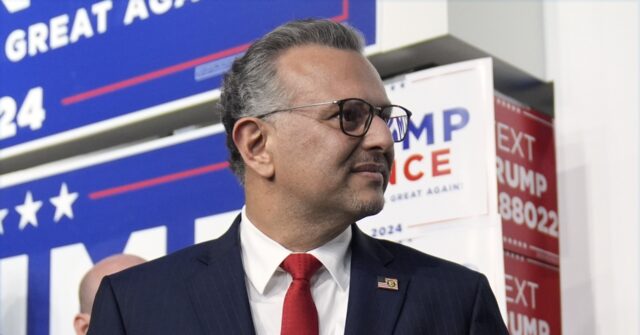President-elect Donald Trump appears committed to pursuing peace in the Israeli-Palestinian conflict, which he dubbed the “Deal of the Century” during his first term. While his administration’s efforts led to the Abraham Accords — a series of normalization agreements between Israel and several Arab nations — these did not result in Palestinian participation. Recently, Massad Boulos, the father-in-law of Tiffany Trump, has been actively engaging with Palestinian Authority (PA) leader Mahmoud Abbas, aiming to renew diplomatic ties. Reports indicate that Boulos facilitated the exchange of letters between Trump and Abbas following an assassination attempt on Trump in July, signaling a desire to rebuild connections and potentially lay the groundwork for future negotiations.
During discussions at the United Nations General Assembly, Abbas expressed his readiness to collaborate with Trump to achieve a two-state solution to the Israeli-Palestinian conflict. Boulos, accompanied by Bishara Bahbah from Arab Americans for Trump, played a crucial role in orchestrating Abbas’s goodwill message to Trump post-assassination attempt. Furthermore, Boulos has been selected to lead negotiations with Lebanon regarding the ongoing conflict involving Hezbollah, demonstrating a broadened scope of Trump’s diplomatic strategy in the region.
Historically, the relationship between Trump and Abbas has been fraught with challenges. When Trump assumed the presidency in 2016, the Palestinians were taken aback and lacked established channels of communication with the new administration. While a meeting between Trump and Abbas occurred post-election, it was poorly received from the Palestinian side, particularly following Trump’s criticisms of the PA for financing terrorism. His administration implemented the Taylor Force Act, which halted U.S. financial assistance to the PA amid concerns over its support for terrorist activities and subsequently closed the PLO office in Washington, D.C.
Despite the difficulties of the past, the dynamics of the situation may be shifting, particularly in light of the recent Hamas attacks on Israel on October 7, 2023. Trump seems less inclined to pursue a two-state solution and may instead seek peace through different means, potentially re-evaluating incentives for the Palestinians. Concurrently, Israeli Prime Minister Benjamin Netanyahu has reported maintaining close communication with Trump, emphasizing their shared perspectives on various issues, including the Iranian threat and regional opportunities for peace.
As the geopolitical landscape evolves, notable actions are taking place among regional powers. Qatar has initiated steps to remove Hamas leaders from its territory, indicating a potential shift in how Gulf nations view their relationship with the group. Moreover, there are indications that Saudi Arabia may be reconsidering its normalization efforts with Israel, which could contribute to a newfound momentum towards a comprehensive peace agreement.
In light of these developments, the prospect of realizing the “Deal of the Century” becomes increasingly plausible. Trump’s administration, with its renewed engagement with Palestinian leadership through intermediaries like Boulos, could navigate the complexities of the Israeli-Palestinian conflict while capitalizing on changing regional dynamics. As the situation unfolds, it remains to be seen how these interactions will shape the future of peace in the Middle East and whether Trump’s renewed commitment will yield tangible outcomes for both Israelis and Palestinians.

